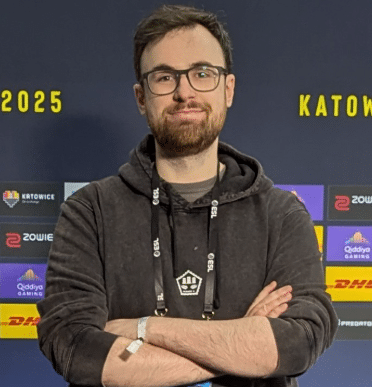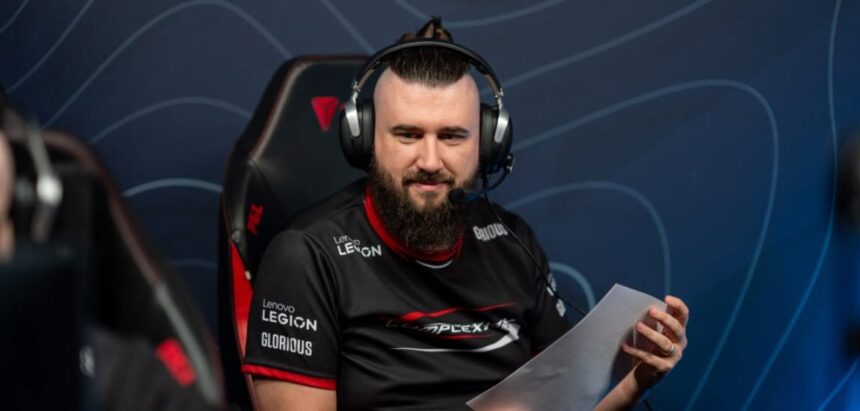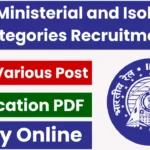Complexity Counter-Strike General Manager, Graham ‘messioso’ Pitt, is one of Britain’s behind-the-scenes success stories. In a career that has taken him from British LAN events to tournament administration roles at tier one, the Briton has carved out a niche which is made him a valuable asset to several TOs and organisations, not least of which Complexity.
In Part 1 of the interview, Esports News UK talked to messioso about his journey into esports from his playing roots, to Insomnia admin, to being the General Manager of one of Counter-Strike’s most celebrated and historic organisations.
In a role that has taken the Brit, who now resides in Denmark, all over the globe, messioso’s journey shows how capability can intersect with opportunity to create a career at the upper echelons of esports.
Stay tuned for Part 2 and Part 3, where we discuss Complexity’s 2025 in detail and the VRS system after one full season.
How did you get involved in esports from a UK perspective?
Yeah, so I didn’t specifically get started in UK esports. My original background in esports was in Call of Duty, Call of Duty on the PC, before it got sort of mixed up with console, before Activision ruined the game.
My original, my playing career, I guess you could call it (it wasn’t much of a career), but yeah, my playing was in Call of Duty, and I started running tournaments online for a tournament organiser that no longer exists called Clanbase. I joined their staff running events for them, and then slowly sort of transitioned into working for other tournament organisers.
Then I started working for Insomnia as a volunteer to run their Call of Duty 4 tournaments, and I also started doing the same for EPIC.LAN, so some of the earlier EPIC.LANs, I worked at.
Then, again, I sort of transitioned back into sort of more sort of European-level stuff, and I was working for ESL as a volunteer, I guess you would say, for a few years, before joining them full-time.
One of the responsibilities I had there was working on the UK side of ESL, back when they had the ESL Pro Series, the early seasons, when it was just like Counter-Strike Source and Call of Duty 4, so sort of like a bit of UK when there was UK events, but also European sort of focus as well. So it was kind of a mixture of both that ultimately led me to starting my full-time career.
I did work briefly for Multiplay, so the people behind Insomnia, I think I worked for them for about nine months full-time before I moved to Germany, and that was sort of where my UK focus really ended, I guess you could say, but I was a full-time employee at Multiplay running all their esports operations, I guess, along with a guy called Matt (‘Kharne‘ Macdonald), who’s now with Enclave, the new LAN that sort of rose from the ashes of Insomnia.
So yeah, it’s been a long time since I’ve been involved in UK esports directly, at least I think it’s been at least 12 or 13 years.
The honest truth is I wasn’t very good at the games I played… Going into the tournament administration side of things allowed me to continue attending the events I was already attending… I got to do something that I enjoyed, I got to attend all the events I wanted to attend, socialise with the people I wanted to socialise with.
messioso
Why do you think that sort of admining and more logistical or tournament organisational aspects were your route into esports? Why do you think it suited you?
Yeah, so I’m a football referee, or I was a football referee, I think, when I was 17, so the whole idea of refereeing matches and admining things was something that I was already into outside of esports, and the honest truth is I wasn’t very good at the games I played.
I was decent, but I wasn’t exceptional, so going into the tournament administration side of things allowed me to continue attending the events I was already attending.
I think there was a gap in the market, so to speak, for someone who was good at it, and I’d like to say I was good at it. I sort of got the best of both worlds really.
I got to do something that I enjoyed, I got to attend all the events I wanted to attend, socialise with the people I wanted to socialise with, and weirdly back then, even though I wasn’t getting paid much, getting paid to work in the administration side of things was actually more guaranteed money than you would get from playing in some ways.
We’re talking sort of like 2007/8/9. It was still the very early years of esports, and if someone was paying me 50 euros a day to come run their tournament, that was still probably more than most players were going to get from that tournament.
I wouldn’t have to pay for my own travel, I wouldn’t have to pay for my own accommodation, so I was getting paid and my expenses were going down, so weirdly it was financially motivated as well.
Even though the money, the numbers involved back then were extremely minimal, there was a financial incentive, so to speak, to make the switch, so maybe it was shrewd, maybe it was cheeky, but it worked for me.
I was like 18, maybe, so I was finishing college, going to university, and getting to travel around the world, and then going to esports events. That was a great life for me. I enjoyed it.
messioso
So we can see the DNA of you being a stickler for the rules being a thing throughout your life?
Yeah, I mean, yeah, understanding your environment, I guess you could say.
I could keep trying to plug away and be a player, and I was realistically never going to earn prize money, so there was never going to be an income stream there, but being able to still go to all the events, socialise with the same people, and at least not come down negative from the event, I probably would end up spending the daily rate on something, but it worked out.
I was young. By the time I started attending events, I was like 18, maybe, so I was finishing college, going to university, and getting to travel around the world, and then going to esports events.
That was a great life for me. I enjoyed it.
You touched on the ESL UK Premiership. Do you have reflections on that time, and if ESL Prem’s removal had an effect on the UK? I know NA Counter-Strike is your focus.
Yeah, I’ve always said that I’d love to go back and work more with the UK esports again, even though right now I work primarily with North American Counter-Strike, obviously, there’s a global element to that as well.
I haven’t lived in the UK for 12 and a half years or something, so I think it’s very hard to be deeply integrated into an ecosystem where you’re not regularly attending all the events, you’re not directly involved in it.
I do have an ego, but I don’t have as much of an ego to say that, I could go back in and help and fix things. Like, I’m so out of touch with it now that it would be it would be hard to go back, but I’ve had opportunities to go to events sometimes, people have invited me over and said, ‘Hey, do you want to come do something at this event and it’ll be a nice little social thing?’, and I love doing that.
The Insomnia guys, especially, they invited me back a few times to go to their events, and whether it was to oversee the admins running the event or things like that, it was a nice experience.
But yeah, it’s been way too long for me to have any real sort of opinion on how things are going these days, and things have changed a lot as well. You know, the people that I knew in UK esports almost don’t exist anymore.
I think the only ones that I have a real existing relationship now is the Endpoint guys, because we’ve been to their bootcamp a few times, and I get along well with Pete (Thompson, Endpoint Co-Owner/COO) as well, so we talk a lot about the ecosystem and things like that.
I love UK esports in a sense that I wanted to do well because I am British, and I wanted to be successful, but I don’t really have much of a thought or opinion on what’s going wrong, or what isn’t going wrong because I’m just so detached from it these days.
Heroic and Godsent, and then later Astralis came under my wing as well, so I was sort of the team manager for all three teams at one point. And we can have a separate discussion about the conflict of interest involved in all this, because there clearly was one, and it wasn’t super comfortable, but it happened...
messioso
In your role at RFRSH, which is now BLAST, you started getting more attached to teams and working with teams, so can you elaborate on how that came to be?
Yeah, it must have been, like, mid to late 2016, I got approached by what became RFRSH, and they were looking to essentially create a competitor to ESL, Dreamhack, PGL, and StarLadder, who were sort of the operators at the time, and they wanted to run the tournaments, which, as you say, became what is now BLAST.
The second half of their business at the time was that they had teams on the books as well. So, at the time that I joined, we had Astralis, Heroic, Godsent, and we had a Norwegian team called Norse, who are regularly forgotten, but we had them for a few months.
There was actually no intention when I joined that I would have anything to do with those teams. That was never the goal, but we didn’t run our first event for over a year after I joined.
So, there was just this kind of weird time period where Astralis had a manager, they had Frederik Byskov, who was also their co-owner, so he was running Astralis, but Heroic didn’t have a manager, Godsent didn’t have a manager, and Norse didn’t have a manager.
So, there were sort of administration tasks to take over with those teams that I just sort of fell on my lap because I was the one who was the most endemic, I’d say, of the employees we had at RFRSH at the time.
A lot of them were sort of non-endemic people coming in to kind of bring real-world experience to esports, but I was the kind of hardcore esports guy at the time, and I had the pre-existing relationships obviously with ESL and a lot of the tournament organisers.
So it sort of just fell on my lap, and I ended up being sort of the team manager of those three teams or two teams. Mostly Heroic and Godsent, and then later Astralis came under my wing as well, so I was sort of the team manager for all three teams at one point.
And we can have a separate discussion about the conflict of interest involved in all this, because there clearly was one, and it wasn’t super comfortable, but it happened, so let’s not dodge it too much.
It was something that I enjoyed, I liked the competing, I liked the change of pace from just running events. It was an enjoyable experience, and I sort of got the bug for it, and that’s where it really came from.
messioso
I was sort of the team manager for all three teams. I was attending some of the events, I think at one point, at one point I became the coach for Godsent, because we wanted to have a bit more control and understanding of what was happening with that team in particular.
It was a good experience in a way to have for me, because we had Kasper Hvidt, who was the sports director, so he was the guy ultimately in charge of the performance of the teams; he was the guy in charge of the rosters, he was doing like the day-to-day kind of super high-level administrative work of the teams. I was the one doing sort of the grunt work, alongside the work I was doing with BLAST, and I sort of got a bit of a taste for it, really.
It was something that I enjoyed. I liked the competing, I liked the change of pace from just running events. It was an enjoyable experience, and I sort of got the bug for it, and that’s where it really came from.
So you went from competing to admining to experiencing tier one Counter-Strike. Did you enjoy being in it and feeling like you have an effect on matches?
Yeah, I’d say back then, less so. My role was very administrative. I wasn’t expected, nor was I really confident or capable of having more of an effect. But as I’ve taken more time to build into the role and figure out my strengths and weaknesses.
I’ve realised I’m never going to be a high-level tactical person in Counter-Strike. However, I have a good understanding of the game, so I can help with little things.
I think where I can provide more value is on a personal level, a “life” level – not life coaching, but I am getting old now, unfortunately. I’ve just turned 34. A lot of the guys we’re working with are in their late teens or early 20s and definitely have less life experience.
They’ve spent a lot of time away from home, so having someone older with more life experience, who they can lean on and confide in, is something that now falls under my purview. As a 25-year-old, it wasn’t quite the same relationship.
So, as time has progressed, my role has developed, and I’ve figured out where I can be useful. I also like to think I know where to stop and understand where my usefulness ends. That was one of the more valuable lessons I learned over time.
I don’t need to have input on things that aren’t my area of expertise, like tactical, in-game situations. I know that’s not my strength, so I make sure I have people in place to take over those roles for me.
I have lovingly described them as “the kids at home” and “the kids away.”
messioso
You’re a father, right?
I’m a father of two, yes. I’ve got a nearly five-year-old and a nearly two-year-old, so a four and a one-year-old.
And then you also have a bunch of 20-year-olds as well?
Yeah! I have my kids at home and my kids away. I have described it like that before, but it’s not really fair on the guys. I tend to find that the kids at home’s trouble is just, “Oh, my toy broke,” and the kids away’s is, “Oh, my flight got cancelled.”
Arguably, one is way more stressful than the other, though usually they’re not responsible for things like that, so it’s not so bad.
But, yeah, I have lovingly described them as “the kids at home” and “the kids away.”
I was just like, “You know what, screw it, I’ll just send him a message and say, ‘Are you looking for anyone for the CS team?’” And he was like, “Yeah, actually, we’re looking for a General Manager, or a manager.” I was like, “Wow, that has worked out really well for me.”
messioso
Skipping to Complexity and the guys, how did that opportunity come about initially? What was your feeling when you kind of got that offer from such a historic org?
It came around purely through circumstance, to be honest. Kyle, who is the Chief Operating Officer here, is someone I knew a while back because he used to attend DotA events with their DotA 2 team back around 2015. So, I had a pre-existing relationship with him.
I remember one day he just posted, “Hey, we’re hiring for these roles,” and none of them were related to Counter-Strike at all; they were all marketing and sales and stuff like that.
And I was just like, “You know what, screw it, I’ll just send him a message and say, ‘Are you looking for anyone for the CS team?’” And he was like, “Yeah, actually, we’re looking for a General Manager, or a manager.” I was like, “Wow, that has worked out really well for me.”
I went through some interviews with them. We talked about the project, what was coming up, and what needed to be done. It just made a lot of sense.
There’s definitely some level of pride in that sense, in working for a team with that history.
messioso
They needed someone who could come in and take control of the whole project. They almost wanted to – okay, it’s going to sound wrong to say that they wanted to just sort of forget about Counter-Strike.
They needed someone to come in and be over every aspect of the Counter-Strike roster. There’s so much to do with that single team that they didn’t want multiple people getting involved.
They wanted one person who could kind of take every aspect of it and just get it all done, and that worked with my skill set really well. So it came about purely by luck, really, that it all kind of came together.
As you say, the idea of working for Complexity was something that definitely appealed to me. I’ve grown up watching the Complexity Armageddon videos and understanding who Jason (Lake, Complexity Founder & CEO) was, his passion, and watching him go through CGS (Championship Gaming Series), and then out of CGS, and buying the brand back, and the things that he’s gone through.
I think you can appreciate the passion and the level of ownership that he has over the team; it makes you want to work for someone like that. Complexity is a legacy organisation, not just in Counter-Strike, but in esports.
There’s definitely some level of pride in that sense, in working for a team with that history. I think everything really, for me, just sort of lined up perfectly.
I was definitely a benefactor of just being in the right place at the right time. I wasn’t desperately looking for another job at the time, but I thought, “You know, I’ll shoot my shot and just see if, even if it just puts your name in the back of their heads, like, ‘Oh, that guy could be something.’”
But it turned out pretty much instantaneously. I think I messaged them in early July 2021. I think I had to serve like 30 days’ notice at my old company, so I think I started technically in August, even though it was all kind of agreed in early July.
It’s basically my four-year anniversary now, and it’s been going good so far.


Darragh Harbinson is an esports writer specialising in Counter-Strike. He has written for Esports News UK, Esports Insider, UKCSGO, Dexerto, and Rush B Media.









